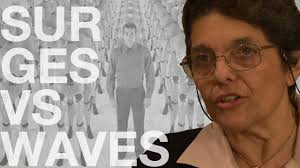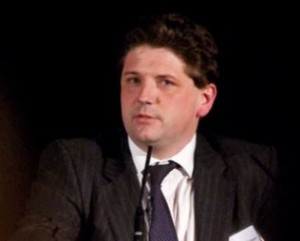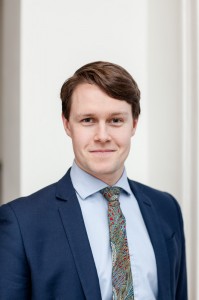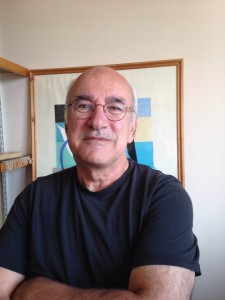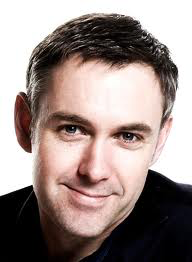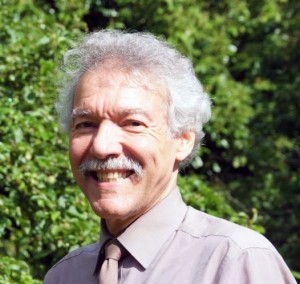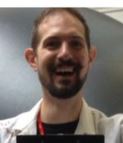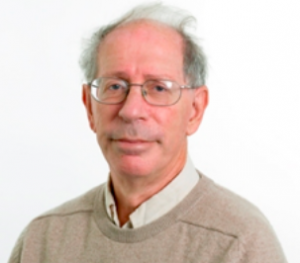When Bubbles Burst
“When Bubbles Burst” provides a fascinating glimpse into the inner workings of the global economy, examining the mechanics behind bubbles and crashes and suggesting trends for the future. In a globalized economy, it has become increasingly difficult for nations, companies and individuals to protect themselves from financial volatility. What causes our global system to generate unforeseen bubbles and catastrophic crashes? The picturesque Norwegian town of Vik provides a microcosm of the fallout of the financial crisis. Somehow, this tiny hamlet – populated by just 2,800 people – was sucked into schemes too complicated to understand and nearly bankrupt. We hear from players in the global economic casino, thinkers and world-class economists, like the celebrated writer Michael Lewis and Nobel laureate Joseph Stiglitz. They give an unflinching account of today’s situation and draw fascinating historical parallels.
Carlota Perez
Venezuelan-British researcher, lecturer and international consultant, Carlota Perez studies the history of technical change and its impact on economic growth and development.
In Technological Revolutions and Financial Capital: The Dynamics of Bubbles and Golden Ages (Elgar 2002), she put forward her theory of the emergence and diffusion of technological revolutions and of the role of finance in the process. Her work has contributed to the present understanding of the relationship between technology, innovation and economic development; between technical and institutional change; and between finance and technological diffusion. She is currently working on a sequel, Beyond the Technological Revolution, funded by the Anthemis Institute, which analyses the roles that government, business and civil society play in the deployment of the potential of each revolution.
She is Centennial Professor of International Development at the London School of Economics, UK; Professor of Technology and Socio-Economic Development at the Ragnar Nurkse School of Innovation and Governance at Tallinn University of Technology, Estonia; and Honorary Professor at SPRU, the Science Policy Research Unit at the University of Sussex, UK. Professor Perez’ books and papers are used as study material in post-graduate courses in universities around the world, and she has lectured at numerous seminars and student conferences.
Her long career has spanned civil service, consultancy, academic research and teaching, beginning in the 1970s with an investigation into the structural causes of the energy crisis in her home country of Venezuela. After working on international technology transfer at the Institute of Foreign Trade, she became the founding Director of Technological Development at the Ministry of Industry – where, alongside other policy instruments to promote innovation, she created the first venture capital fund in the country.
She has acted as consultant for several Latin American governments and for international organisations and multilateral agencies such as UNIDO, CEPAL, the Andean Pact, the World Bank, the OECD and the EU, where she recently chaired the European Commission’s Horizon 2020 Expert Group for Green Growth and Jobs. In the early 1990s she was advisor to INTEVEP, the R&D and technology arm of PDVSA, the national oil company in Venezuela, and has carried out consultancy work for many global corporations including IBM, Cisco, Telefonica, Mondragon and Ericsson. Since the publication of her book, she has been regularly invited to participate as keynote speaker at international business conferences and public policy events.
Professor Perez received her License in Interdisciplinary Social Sciences (with Economics and Technology at the core) from the Faculty of Sciences, University of Paris VII, and her MA from San Francisco State University, where she developed the first formulation of her theory of technological revolutions and changing opportunities for development. Since working at the Central University of Venezuela, she has nurtured research links with several European universities. She was visiting scholar at IDS, University of Sussex and at INTECH-UNU, Maastricht. Her current position as Honorary Professor at SPRU started with a research fellowship in 1983, when she began a long-term collaboration with Professor Chris Freeman. She has been teaching a post-graduate course at the Tallinn University of Technology since 2007 and was affiliated to CERF at the Judge Business School, Cambridge University, from 2002 until 2014.
